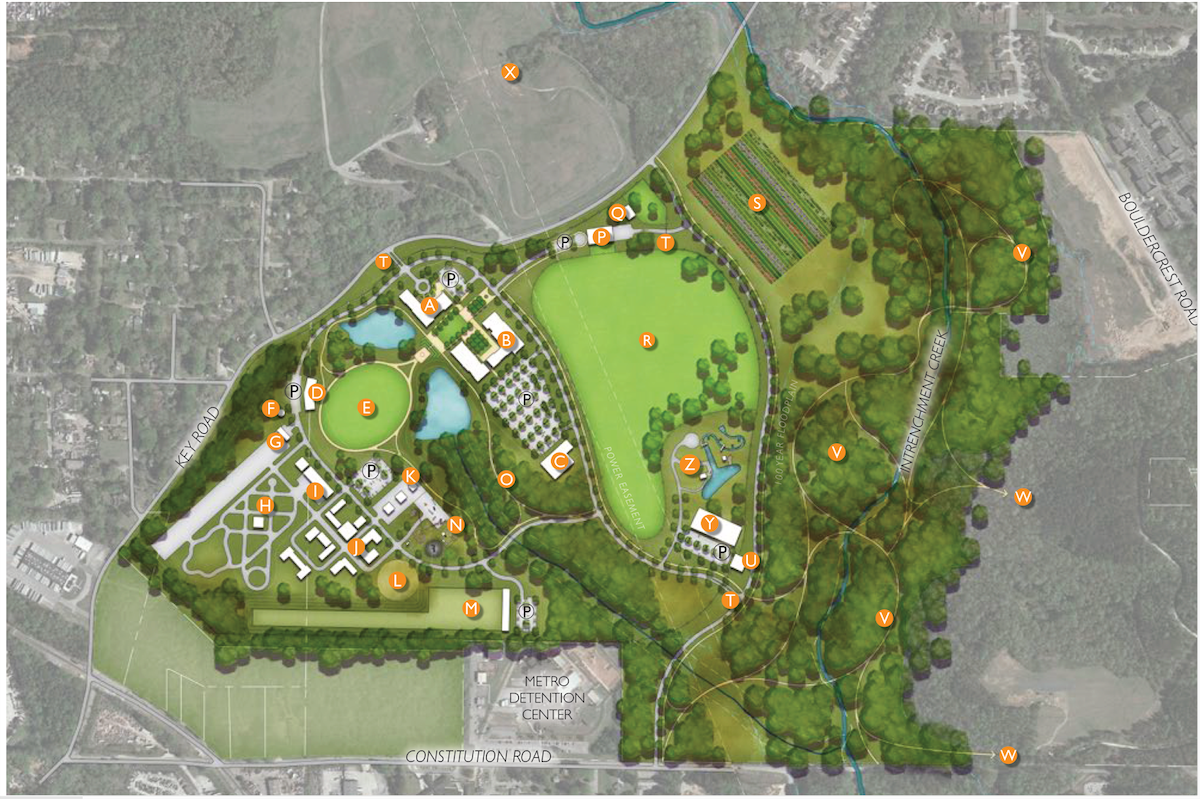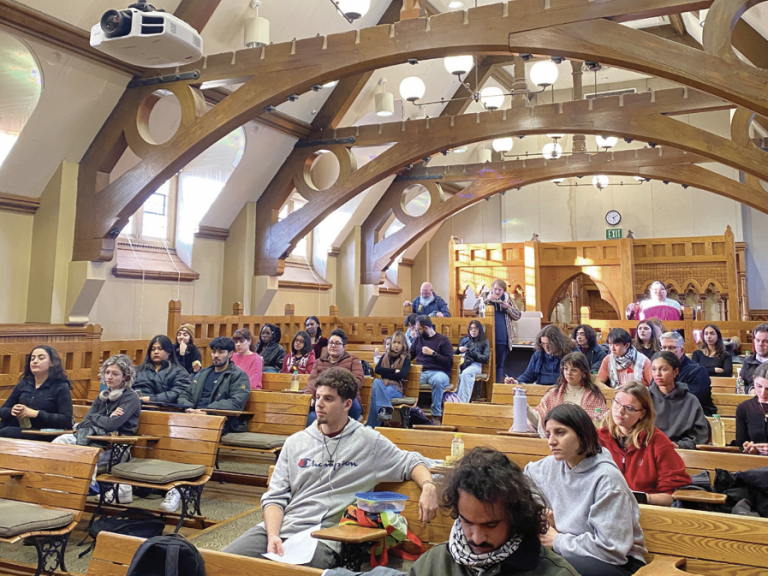Melina Korfonta ‘25
News Editor
Atlanta, Georgia––For almost two years, organizers and activists have been protesting the City of Atlanta’s plans to build a police training center in Weelaunee Forest. The concept is still being defended by Keisha Lance Bottoms, a former mayor of Atlanta, who claims such a facility could only be built on forested territory. A new facility for the cops “can’t wait,” according to Bottoms, who said at the time the City Council voted 10-4 in favor of the training center. The unrest around Atlanta’s “Cop City” has lately intensified after a protester was fatally shot by police, property was damaged by protestors, and other protesters were detained and charged with serious offenses.
Since it was first proposed, “Cop City” has sparked controversy due to its placement on Weelaunee Forest, which was previously home to the Muscogee Creek Nation. On January 18th, 26-year-old Manuel Esteban Terán, nicknamed Tortugita by community residents, was murdered by police while protesting on the site in a wooded area with other environmental activists. Activists with Defend the Atlanta Forest claimed that police officers from Atlanta regularly walk through the woods while drawing their weapons to remove demonstrators. The Black Alliance for Peace’s Atlanta chapter organizer Tunde Osazua claimed that the violence started after the police came and started “using intimidation methods.” Six people were taken into custody after a demonstration on Peachtree Street in Atlanta three days later. These individuals were arrested on felonies such as domestic terrorism and unlawful assembly.
The Atlanta Police Department, in addition to Atlanta Fire Rescue, the city’s 911 call center, and various K-9 units, receives training at the Old Atlanta Prison Farm. In order to improve morale, retention, and recruitment in the city’s law enforcement agencies, Mayor Bottoms praised the project as a “reasonable reform” that she believes is necessary. The initiative, however, rapidly received opposition from local communities that fear a training facility would do nothing to combat police-spurred violence. According to environmental organizations, clearing out a significant portion of the forest could have a harmful impact on the South River and the local villages. The Atlanta Police Foundation has received public criticism for leasing the forested area from local residents, who have also gained support to raise awareness of the issue—even persuading investors to withdraw their funds from the project. Although there have been environmental concerns, the facility is reported to be constructed in accordance with EPA regulations and controls.
Atlanta’s proposed $90 million, 85-acre Atlanta Public Safety Training Center, which would contain shooting ranges, a fake city for police training, and a K-9 unit kennel, is being opposed by historically Black colleges and universities (HBCU) students. A forum with Chris Smalls, president of the Amazon Workers Union, who backed the students, was organized on February 2nd by student organizers from the Atlanta University Center Consortium (AUCC). Spelman made a statement congratulating students for their “address[ing] the key social concerns of our time” while Morehouse released a statement “calling for peaceful protest,” reiterating their commitment to improved policing procedures and connections with the Black community. The plans for the training center were discussed at a private forum that Morehouse College hosted with current Atlanta Mayor, Andre Dickens, following the forum; however, students expressed dissatisfaction with the Mayor’s patronizing tone of communication. This is particularly true in Atlanta, the location of the Student Nonviolent Coordinating Committee (SNCC), which served as the primary vehicle for student involvement in the civil rights struggle in the state.
Vigils for Tortuguita have been held everywhere from Florida to California, garnering support for the effort to “Stop Cop City” from outside Atlanta. Activists are hoping that the city will commit to its pledge to turn the run-down area into a park and reserve, including investing in building low-cost housing, basic social services, and mental health services.







[…] Originally written and posted for The Trinity Tripod on February 28th, 2023. […]